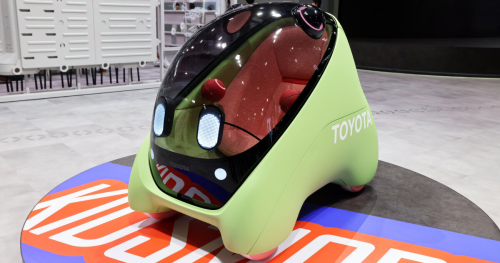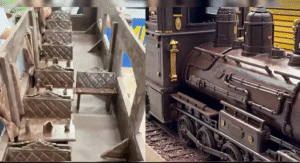At the Japan Mobility Show 2025, Toyota captured global attention with one of the event’s most unexpected and thought-provoking debuts: Mobi, a fully autonomous, AI-powered electric “bubble car” created specifically to transport children without any adult supervision.
Displayed from October 30 to November 9, the prototype blends futuristic engineering with playful design. With its blinking LED eyes, bright pastel colors, and rounded Pixar-like shape, Mobi looks more like a friendly animated character than a conventional vehicle. Toyota’s goal is clear — to make autonomous mobility feel safe for parents and delightful for kids.
A gullwing-style canopy lifts upward to reveal a soft, beanbag-like seat, forming a snug and child-friendly cocoon for one young passenger. The vehicle operates entirely through AI, navigating roads via advanced cameras, sensors, and real-time obstacle detection systems. It maintains safe distances, follows traffic rules, and monitors surroundings continuously.
Inside, a digital companion named UX Friend acts as a talking guide, offering reassurance, safety instructions, and playful conversation to keep children relaxed during their ride — a blend of innovation and slight eeriness that sparked debate among visitors.
Toyota has not yet shared full technical specifications or outlined any testing or regulatory plans. Questions remain about approval processes and whether society is ready to trust autonomous pods carrying children alone.
Though Mobi is just a concept, it represents a bold glimpse into the future of urban mobility — one that inspires both excitement and apprehension. As AI-driven transportation evolves, Toyota’s child-focused bubble car raises the biggest question of all: Will parents trust AI with their most precious passengers?







